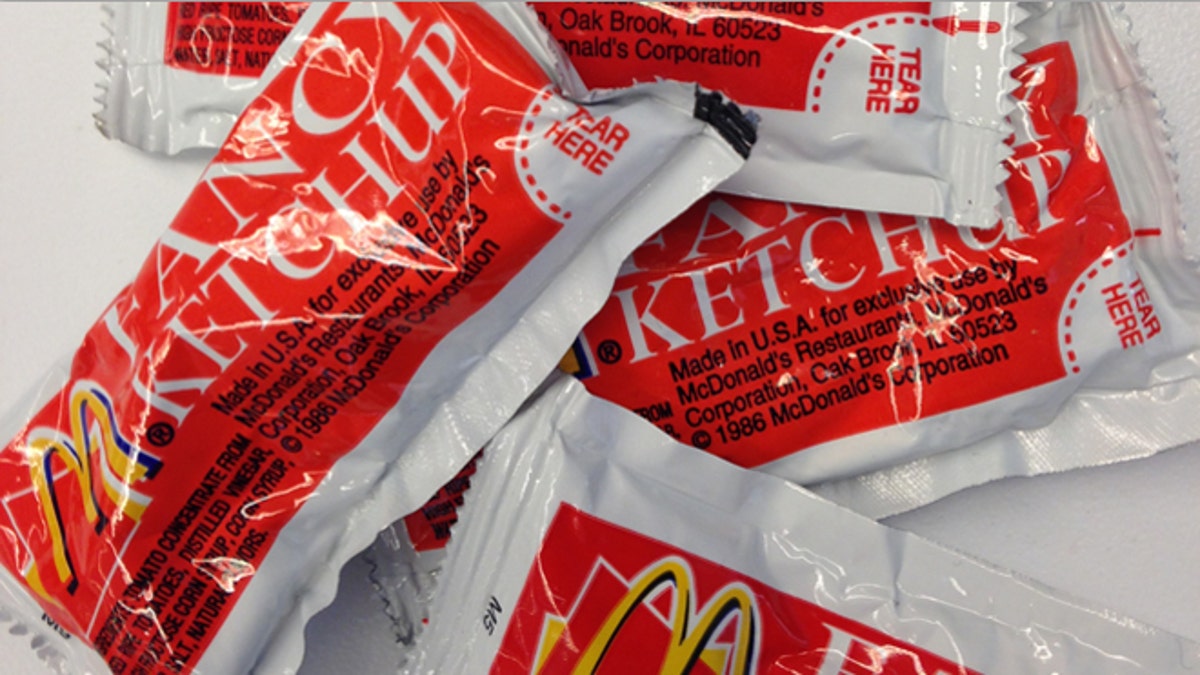
(Photo: Andrew O'Reilly)
It has not been a good start of the year for Argentineans: a collapsing currency value, rampant inflation, Lionel Messi losing out on his fourth straight FIFA Ballon d'Or and, maybe worst of all, the great McDonald’s ketchup shortage of 2014.
The fast food giant sent a message out via Twitter earlier this week apologizing for the inconvenience that Argentineans will have to suffer through their Big Mac and French fries without the pre-requisite ketchup.
“The ketchup shortage at our local branches is momentary and we hope to solve it as soon as possible,” the McDonald’s tweet in Spanish said. “We’re bringing in other sauces to replace it while we try to fix the problem.”
McDonald’s continued its social media campaign by saying that the sauce shortage was due to a supply problem, but this explanation did little to appease Argentinean appetites for ketchup.
"You food without ketchup makes no sense! The ketchup is indispensable," tweeted one fast food customer, according to Business Insider.
One of the country’s major newspapers, Clarín, also weighed in on the shortage, comparing the lack of ketchup to being as bad as the country running out of chimichurri to put on steak.
Of course, the condiment commotion is most likely tied to the country’s more pressing financial woes.
Argentina suffers from a shortage of dollars and one of the world's highest inflation rates — 25 percent to 30 percent, well ahead of the official government numbers.
Argentina's economy this year is expected to expand no more than 1.5 percent, mainly because of lower commodity prices and waning demand from China for its agricultural goods. The government's policy of nationalizing private firms has also spooked investors. The peso has plummeted, and the country is running low on reserves to defend it.
Like many, Carlos Partcha, an 80-year-old retired journalist, is buying U.S. dollars and stashing them under his mattress, as he's done for more than a decade. "We don't trust anything anymore — not even the banking institutions," Partcha said.
Many Argentineans note that the current economic woes are not as bad as Argentina's financial collapse in 2001-2002. Unemployment remains relatively low, and many people benefit from government handouts. Yet they worry the country may be at a tipping point.
"People are adopting defensive measures to survive," said Jorge Raventos, a political analyst and former spokesman for Argentina's foreign relations ministry. "People endure this by zig-zagging along, but it's hard to know how much they can take before they explode."
The government recently eased tough restrictions on exchanging pesos for foreign currencies after they backfired by pushing many Argentines to buy dollars on the black market.
Independent economists say the government's pullback on currency controls is just a bandage for a wounded economy that needs to contain inflation by dialing back public spending. The government, in turn, blames banks, energy companies and big businesses, accusing them of speculating with the peso and raising prices to provoke instability.
The Associated Press contributed to this report.
Follow us on twitter.com/foxnewslatino
Like us at facebook.com/foxnewslatino
